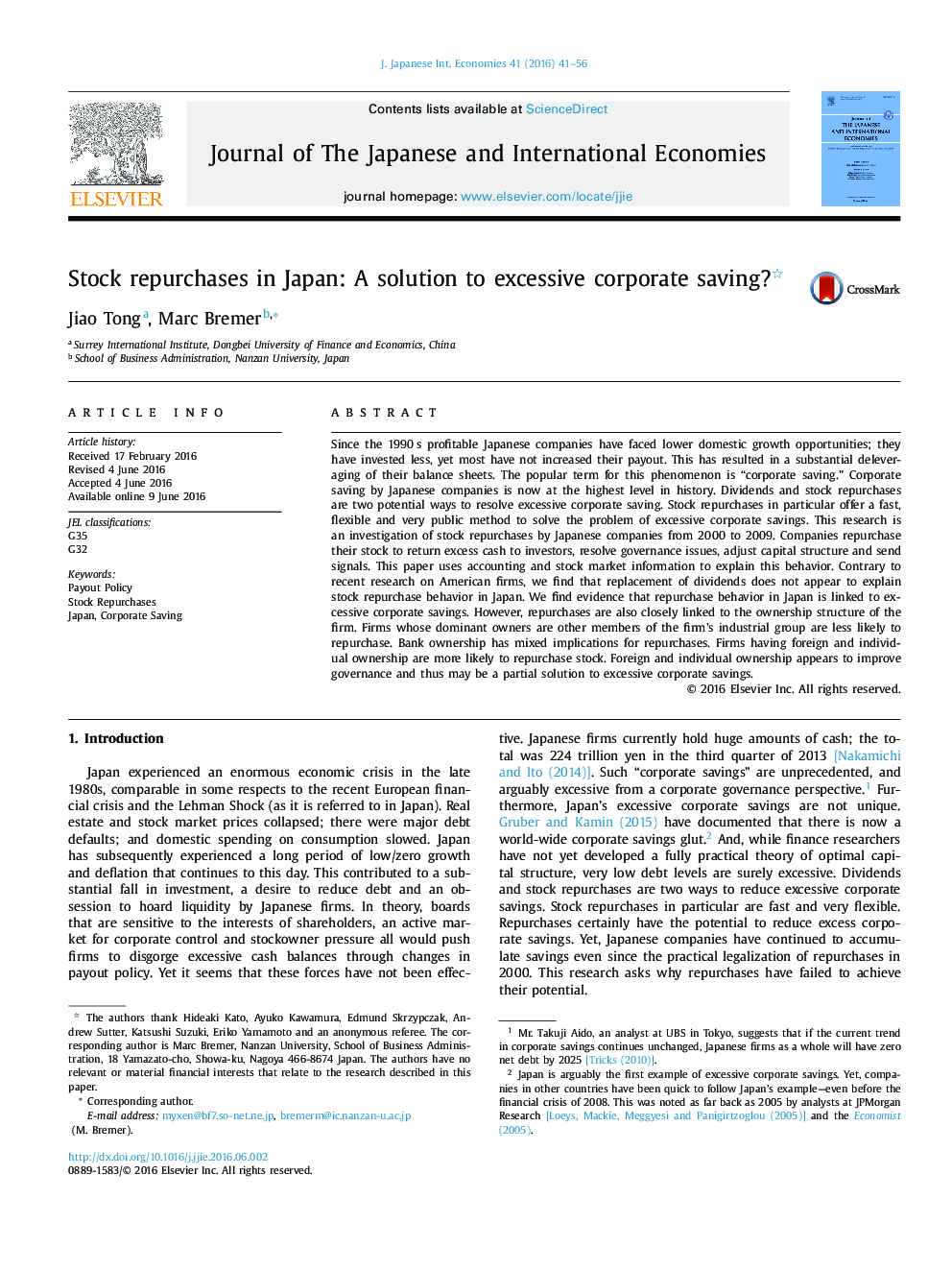| Article ID | Journal | Published Year | Pages | File Type |
|---|---|---|---|---|
| 964880 | Journal of the Japanese and International Economies | 2016 | 16 Pages |
•Japan has excessive corporate saving.•We study stock repurchases in Japan from 1995 to 2009.•Companies repurchase stock to adjust their capital structure.•Stock repurchases do not replace dividends.•Firms with dominant corporate owners are less likely to repurchase.
Since the 1990 s profitable Japanese companies have faced lower domestic growth opportunities; they have invested less, yet most have not increased their payout. This has resulted in a substantial deleveraging of their balance sheets. The popular term for this phenomenon is “corporate saving.” Corporate saving by Japanese companies is now at the highest level in history. Dividends and stock repurchases are two potential ways to resolve excessive corporate saving. Stock repurchases in particular offer a fast, flexible and very public method to solve the problem of excessive corporate savings. This research is an investigation of stock repurchases by Japanese companies from 2000 to 2009. Companies repurchase their stock to return excess cash to investors, resolve governance issues, adjust capital structure and send signals. This paper uses accounting and stock market information to explain this behavior. Contrary to recent research on American firms, we find that replacement of dividends does not appear to explain stock repurchase behavior in Japan. We find evidence that repurchase behavior in Japan is linked to excessive corporate savings. However, repurchases are also closely linked to the ownership structure of the firm. Firms whose dominant owners are other members of the firm's industrial group are less likely to repurchase. Bank ownership has mixed implications for repurchases. Firms having foreign and individual ownership are more likely to repurchase stock. Foreign and individual ownership appears to improve governance and thus may be a partial solution to excessive corporate savings.
